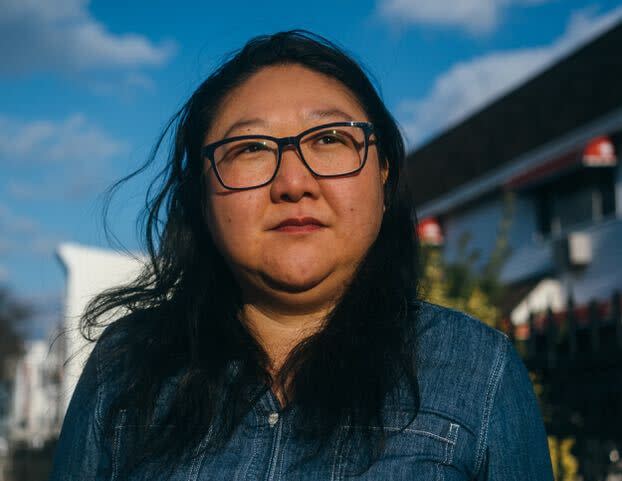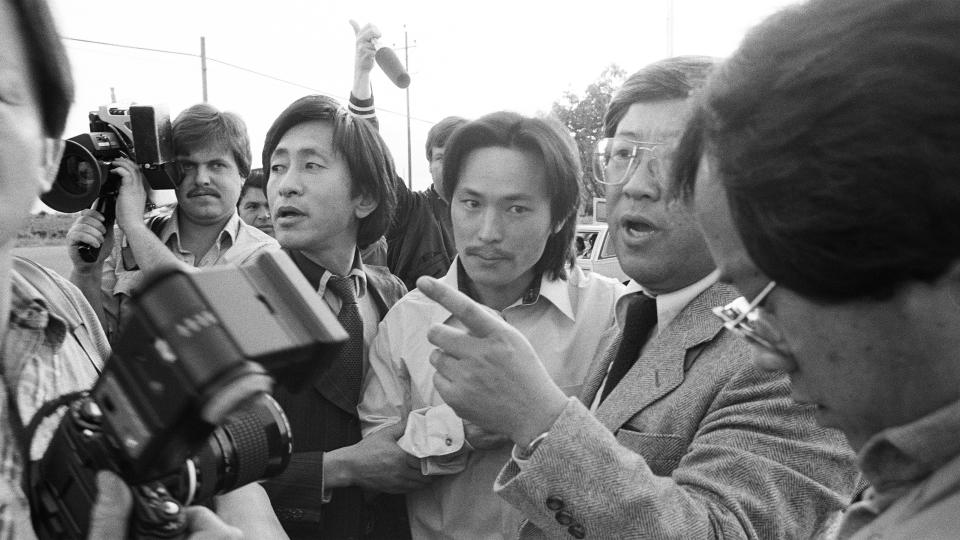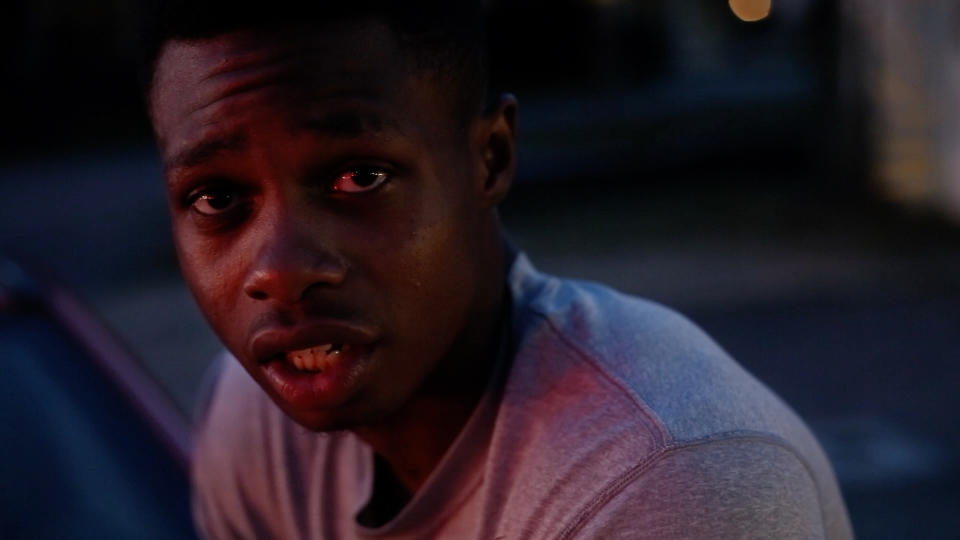‘Free Chol Soo Lee’ Producer Says Commercial Pressures Have Created a Crisis for Documentary Filmmaking
- Oops!Something went wrong.Please try again later.

A cursory look at documentary producer Su Kim’s filmography presents an immediate contrast to the era of the blockbuster documentary. Her movies explore underrepresented experiences from the inside out, and present the ultimate antidote to the hodgepodge of high-profile portraits of celebrity and corruption that dominate the non-fiction market.
“I want to capture stories from the margins of power and insert them into into the mainstream,” she said in an interview with IndieWire this week, “to shed light on people who often fall through the cracks.” That may sound like lofty ambition, but it’s supported by the work.
More from IndieWire
In 2018, Kim was nominated for an Oscar on director Ramell Ross’ “Hale County This Morning, This Evening,” an operatic immersion into the lives of a Black community in Alabama; 2019’s “Midnight Traveler” follows an Afghan director and his family on the lam from the Taliban through footage shot as they fled; “Bitterbrush,” which opened earlier this summer, portrays the lives of two Montana cowgirls. Now comes “Free Chol Soo Lee,” which revisits the little-known story of a Korean-American man who was wrongfully incarcerated for 10 years before his acquittal in 1983, which set him up for a difficult life.
Despite the geographic and cultural diversity of these subjects, Kim’s fixation is clear. “One of the things that has always interested me is stories of migration,” said Kim, whose family immigrated to New York from South Korea when she was a young a child. “Being an immigrant myself, I always drawn to the lives of outsiders, and I do think that’s a common thread in my work.”
Kim’s producing career over the past decade coincided with the explosion of the documentary filmmaking market stimulated by the streaming market. Yet even as tentpole documentaries on J. Lo, “Tiger King,” and “The Tinder Swindler” have stimulated more interest in the form, Kim said this trend has created a greater challenge for the work she seeks to produce. “People say it’s a golden age of documentaries, but I wonder if that’s a crisis,” she said. “There’s a shrinking space for the kind of content I’m trying to put into the world.”

MUBI
Nevertheless, working as a free agent from one project to the next, she has persisted. For “Free Chol Soo Lee,” Kim spent six years working with filmmakers Julie Ha and Eugene Yi to cobble together the resources for a story that should resonate widely with the Asian American community and beyond.
After Lee was wrongly convicted of a gang-related murder in San Francisco’s Chinatown in the 1970s, powerful mobilization efforts by activists and reporters helped secure his release, at which point he struggled to reorient himself in society. The movie serves as a microcosm of the way that racism and corrupt judicial proceedings can have long-term effects that ripple across society.
“It’s this obscure story, but quite epic,” said Kim, who admitted she hadn’t heard about Lee’s story but her mother had. “It was appalling that I didn’t know about it,” she said. “I know what it’s like to feel like you don’t belong here, and the desire to be seen for who you really are.”
She became as invested in its success as the first-time directors. “To get a project like this going requires a recognition of its worth and for minorities it has been hard to find that,” Yi said in a separate interview. Kim put it blunter terms: “I mean, there aren’t that many Korean-American producers, and I was one of them.”
After her family’s arrival in New York, Kim learned English in part by watching PBS documentaries on TV. That fostered her early interest in non-fiction filmmaking despite her parents’ pressure to pursue a more lucrative career. In her early twenties, she burned out on a marketing gig and left it to produce full-time. “I was really bored of marketing,” she said. “I knew I couldn’t do it for the rest of my life.”
She landed her first film gig as a producer on the PBS documentary “Adama,” which follows a teenage Mulsim girl falsely accused by the FBI of being a suicide bomber, and her thematic focus continued to evolve from there. From “Bitterbrush” to “Free Chol Soo Lee,” Kim has supported projects that address gaps in contemporary storytelling.
“I really think that nonfiction filmmaking is an art form, and nonfiction fiction films have the potential to be as transcendent as anything in the history of cinema,” she said. “I feel that we’ve come into a system that pressures filmmakers to be commercial, and sometimes I wonder about that. It’s a struggle to get your films made and funded, but also to hold onto your voice. That’s the biggest change that I’ve seen.”
On “Free Chol Soo Lee,” Kim pulled together financing from a wide array of sources, including PBS and the Korean Film Council, which had never financed a Korean-American film before. That piecemeal approach helped serve early goals by the filmmaking team to secure an upcoming release in South Korea in addition to showing the film in prisons for incarcerated people, as PBS is available to them nationwide. “On the business side of things, that does limit your distribution potential,” she said.
But with MUBI releasing the film the U.S. and several other territories, the movie has many opportunities to find an audience; coupled with the sale of “Bitterbrush” to Magnolia last year, it seems that Kim has started to find solutions to pushing supposedly challenging work into the marketplace.
But it was the Oscar nomination for “Hale County” that marked a true turning point in that mission. “For me, that was really a happy surprise,” she said. “It proved there was an audience for films like that, and my job as a producer is to champion those voices even when they’re difficult.”

“Free Chol Soo Lee” faced a major hurdle over the years in figuring out how to centralize Lee’s perspective given that he died in 2014. Kim solved that problem last year, when she came across the PBS documentary series “College Behind Bars,” which features the experiences of Sebastian Yoon. After his incarceration at the age of 16, Yoon eventually managed to gain an education through a prison program established by Bard College.
He was released in 2019, and Kim had the idea of hiring Yoon to provide the voiceovers from Lee’s letters and speeches in their film. The result is a touching performance that makes a thematic connection between the story at hand and contemporary circumstances. The filmmakers said Yoon offered notes on how to better highlight the emotional toll of Lee’s incarceration. “Sebastian made us realize how much the story resonated with him so deeply when he read Chol Soo’s memoir,” Ha said. “He was in tears. He could remember that feeling of loneliness and isolation.”
Yi added that he was reticent to believe that the industry had started to embrace Asian American stories on a broader scale. “There’s still fear that there won’t be interest in funding Asian American projects but I do hope to have those opportunities,” he said. Ha, however, said that the documentary space provided an ideal alternative venue. “As we fight the battles within Hollywood’s mainstream institutions,” she said, “we also have to create our own storytelling platforms to push this conversation forward. “
Kim, meanwhile, has two other documentaries from the festival circuit in the distribution pipeline in the coming months, both of which screened at Tribeca at the start of the summer. With “Sansón and Me,” Mexican filmmaker Rodrigo Reyes tracks the filmmaker’s relationship to an immigrant sentenced to life imprisonment after a gang-related murder in California; in “Hidden Letters,” director Violet Feng looks at the secret exchanges between women in China who correspondent during oppressive marriages across thousands of years.
Both projects continue Kim’s fixation on underrepresented perspectives in contemporary cinema. “I’m idealistic,” Kim said. “I think there’s space for these stories and audience for them. I think that’s where should be collectively finding inspiration.”
However, she worries about the appropriate resources to support such filmmaking in the long-term. “‘Free Chol Soo Lee’ took six years and ‘Sansón and Me’ took 10 years,” she said. “We need to find a way to provide sustainable careers. It’s becoming more and more difficult. I struggle with that; the directors I work with struggle with that. It’s a challenge that the whole industry has to look at now.”
MUBI releases “Free Chol Soo Lee” in limited release this week.
Best of IndieWire
From 'Barbie' to 'Babylon,' Here's Everything Margot Robbie Has in the Works
All the Details on 'Hunger Games' Prequel 'The Ballad of Songbirds and Snakes'
Sign up for Indiewire's Newsletter. For the latest news, follow us on Facebook, Twitter, and Instagram.

